 I came across two ideas this week that feel related. First, in the Todoist (to-do-ist) newsletter, the topic was shutdown rituals. The eponymous app (which I have no idea how to use) is aimed at keeping remote work productive. For some people, living and working in the same place means clear boundaries between personal and professional identities take extra work, Having a shutdown ritual–good-bye, work day/hello, rest of my life–can help with that.
I came across two ideas this week that feel related. First, in the Todoist (to-do-ist) newsletter, the topic was shutdown rituals. The eponymous app (which I have no idea how to use) is aimed at keeping remote work productive. For some people, living and working in the same place means clear boundaries between personal and professional identities take extra work, Having a shutdown ritual–good-bye, work day/hello, rest of my life–can help with that.
I have a shutdown ritual for the end of my day, but not for the end of my writing sessions, nor do I want one. I want my subconscious to know the writing tab is always open, and to be focusing on writing-related challenges (what keeps the couple in my work in progress apart?!), when I’m asleep, in the shower, or driving to the horse barn.
Then the second idea arrived, courtesy of author Charles Finch’s social media feed. Charles writes the utterly delightful Charles Lenox mystery series, which is set in Victorian England. He asked his readers: What are your-rest-of-the-year resolutions?
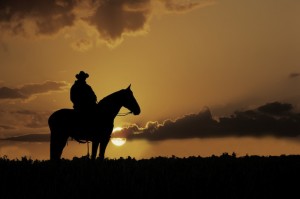 One of the casualties of the pandemic for me was my sense of time passing in discreet, orderly units. Days blended into weeks and months, some years went by, and now… I can mostly tell you what day of the week it is, and even get the date right too, but it’s still not automatic, and it should be. It used to be.
One of the casualties of the pandemic for me was my sense of time passing in discreet, orderly units. Days blended into weeks and months, some years went by, and now… I can mostly tell you what day of the week it is, and even get the date right too, but it’s still not automatic, and it should be. It used to be.
So I’m asking myself: What end of year resolutions will help me wish 2023 a friendly farewell? How can I use the next two months to fashion a shutdown ritual for 2023? I will get after my now dormant flower beds (yay for the first frost!), plant next year’s bulbs, probably do a wardrobe review, and take a break from writing this blog.
In the coming weeks, I’ll also be looking for ways to punctuate the farewells that happened in 2023. Farewell to riding horses (for now at least). Farewell to about 35 pounds (and may they please stay the heck gone and take another 35 with them). Farewell to hiding in the house to do my steps on the tread desk when I live in a gorgeous corner of the world.
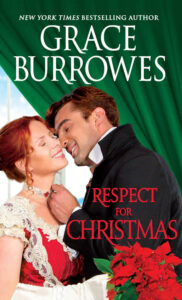 I will think more on this business of shutdown rituals and rest of the year resolutions. Both topics help me focus on being present in the time I have, in the situation I’m in, and that’s generally a good thing.
I will think more on this business of shutdown rituals and rest of the year resolutions. Both topics help me focus on being present in the time I have, in the situation I’m in, and that’s generally a good thing.
Do you rely on any sort of bell-book-and-candle routines to switch gears? Are you hoping to get some projects completed before the New Year arrives?
PS: For the whole month of November, my Windham Brides holiday novella, Respect for Christmas, is priced at $.99 on all the major retailers. This is Henny Whitlow and Michael Brenner’s tale, and one of my faves.
PS: If you’d like an ARC copy of Miss Dramatic, due out Nov. 27 on the retail sites, please email me at [email protected], and let me know what device you read on.







 I recall being about six weeks into my first full-time post-collegiate job, one that expected unpaid overtime, offered few benefits, and had tons of deadline stress, when it occurred to me, “This is what being grown up means. You work forty hours a week not including the exceedingly tedious commute, and if there’s any energy left over, you do laundry, lug groceries, and clean the nest. Welcome to adulthood?”
I recall being about six weeks into my first full-time post-collegiate job, one that expected unpaid overtime, offered few benefits, and had tons of deadline stress, when it occurred to me, “This is what being grown up means. You work forty hours a week not including the exceedingly tedious commute, and if there’s any energy left over, you do laundry, lug groceries, and clean the nest. Welcome to adulthood?” I was lonely, bored, tired, broke, and supposedly on my way as a “successful professional.” This was all very bewildering. Matters improved somewhat when I ditched the Beltway Bandits for the practice of small town law. My motivation was as follows: I had become a single mother, and spending three or four hours a day commuting that I could have been spending with my kid was morally untenable for any amount of money. I was all the family my daughter had on hand, and she did not ask to be born. Time for me to Mom Up.
I was lonely, bored, tired, broke, and supposedly on my way as a “successful professional.” This was all very bewildering. Matters improved somewhat when I ditched the Beltway Bandits for the practice of small town law. My motivation was as follows: I had become a single mother, and spending three or four hours a day commuting that I could have been spending with my kid was morally untenable for any amount of money. I was all the family my daughter had on hand, and she did not ask to be born. Time for me to Mom Up. and besides, the bills had to be paid.
and besides, the bills had to be paid.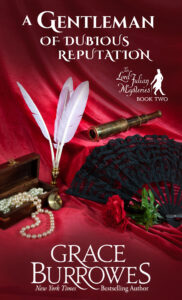 I have always, always loved to write, whether it’s composing an email or writing a twelve book series, but as a young and even middle-aged adult, I ignored what gave me joy, and particularly did not expect to find joy on the job. I’m paying attention to the joy now, by gum, and I am desperately grateful that I can earn my living the way I do.
I have always, always loved to write, whether it’s composing an email or writing a twelve book series, but as a young and even middle-aged adult, I ignored what gave me joy, and particularly did not expect to find joy on the job. I’m paying attention to the joy now, by gum, and I am desperately grateful that I can earn my living the way I do.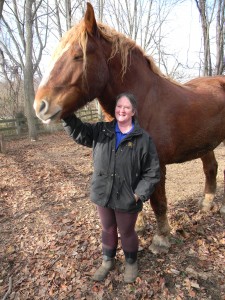
 And yet, that bruise made up my mind. In the lower part of my barn, the stone walls are two feet think. I have no cell reception there, and if that horse had been aiming to do me a mischief…
And yet, that bruise made up my mind. In the lower part of my barn, the stone walls are two feet think. I have no cell reception there, and if that horse had been aiming to do me a mischief… All that eating means wielding the muck fork and the honey wagon, every day, and then there’s the joy of frozen water pipes, frozen meadow muffins, de-worming, annual shots, the occasional boo-boo or sore hoof, the not so occasional bills, and and and. Add to this the idea that even modestly conscientious horsekeeping means three visits to the barn every day, without fail, and finding horse sitters for vacations or emergencies is mighty hard.
All that eating means wielding the muck fork and the honey wagon, every day, and then there’s the joy of frozen water pipes, frozen meadow muffins, de-worming, annual shots, the occasional boo-boo or sore hoof, the not so occasional bills, and and and. Add to this the idea that even modestly conscientious horsekeeping means three visits to the barn every day, without fail, and finding horse sitters for vacations or emergencies is mighty hard.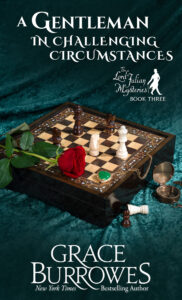 I am grateful for a chance to revisit my memories, to know again the sound of a horse enjoying breakfast on a crisp fall morning, to turn at the gate and see that himself is already nose down in the grass… but I will also be relieved to end my temporary shift, wash the eau du barn from my Hokas, and turn the chores back over to somebody else.
I am grateful for a chance to revisit my memories, to know again the sound of a horse enjoying breakfast on a crisp fall morning, to turn at the gate and see that himself is already nose down in the grass… but I will also be relieved to end my temporary shift, wash the eau du barn from my Hokas, and turn the chores back over to somebody else.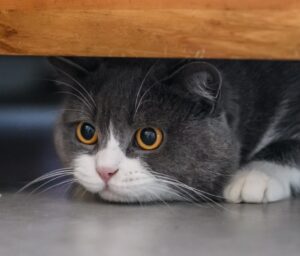 I told my sister about how delightful I find my fellow volunteers at the therapeutic riding barn. Most of us are old horse girls, no longer riding, though we still love horses and know our way around a stable. We sometimes tell each other the same story more than once, and every few weeks one of us is off to have a knee replaced, to start physical therapy, or to consult with eye specialist.
I told my sister about how delightful I find my fellow volunteers at the therapeutic riding barn. Most of us are old horse girls, no longer riding, though we still love horses and know our way around a stable. We sometimes tell each other the same story more than once, and every few weeks one of us is off to have a knee replaced, to start physical therapy, or to consult with eye specialist. Fast forward to the weekly raid on Petsmart, and two young women from my former barn flag me down. We caught up on all the news. Barn manager ridin’ buddy has just committed to getting her horse a custom-made jumping saddle. The investment will be pricey for somebody on a limited income, but it’s much cheaper (and safer!) than trying to train a horse with a sore back. Working Student ridin’ buddy is looking for a horse to lease, a move-up horse who can get her to the next level, but not hold her there when more levels exist to be conquered.
Fast forward to the weekly raid on Petsmart, and two young women from my former barn flag me down. We caught up on all the news. Barn manager ridin’ buddy has just committed to getting her horse a custom-made jumping saddle. The investment will be pricey for somebody on a limited income, but it’s much cheaper (and safer!) than trying to train a horse with a sore back. Working Student ridin’ buddy is looking for a horse to lease, a move-up horse who can get her to the next level, but not hold her there when more levels exist to be conquered. a master’s in conflict. I could probably be useful to them…” On the one hand, my impulse to be helpful is genuine, and I do like to see organizations and friends (well, almost everybody) thriving.
a master’s in conflict. I could probably be useful to them…” On the one hand, my impulse to be helpful is genuine, and I do like to see organizations and friends (well, almost everybody) thriving.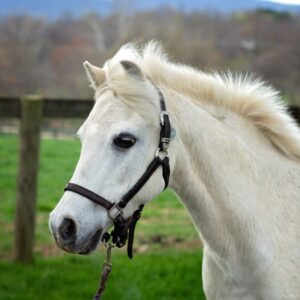
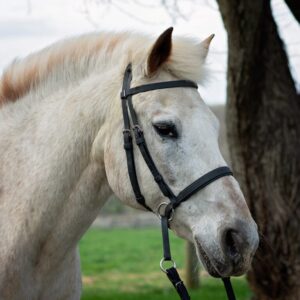
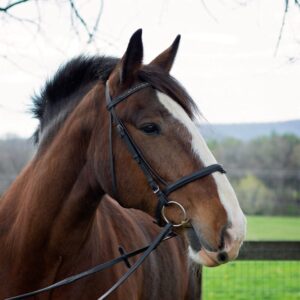
 My family’s political views range all over the spectrum, from libertarian to liberal, with lots of issue-by-issue gradations in between. I was nonetheless surprised to get into a political discussion over breakfast (while out in Utah) with a brother-in-law with whom I expected to disagree.
My family’s political views range all over the spectrum, from libertarian to liberal, with lots of issue-by-issue gradations in between. I was nonetheless surprised to get into a political discussion over breakfast (while out in Utah) with a brother-in-law with whom I expected to disagree.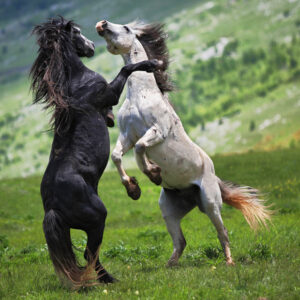 I won the debate both times, which I considered all in good fun–on that issue, at that time, when nobody had any real intention of legalizing pot.
I won the debate both times, which I considered all in good fun–on that issue, at that time, when nobody had any real intention of legalizing pot. We found differences in terms of, “So what do we do about these issues?” but we agreed generally on causal factors. Any skilled negotiator will tell you, that agreeing on a mutually acceptable definition of a problem is step one in getting parties to work together to resolve that problem.
We found differences in terms of, “So what do we do about these issues?” but we agreed generally on causal factors. Any skilled negotiator will tell you, that agreeing on a mutually acceptable definition of a problem is step one in getting parties to work together to resolve that problem. Last week I wrote about how a trip to southern Utah gave Lord Julian’s work in progress a boost, but since I’ve come home, I’ve seen a few other boosts as well. First, and maybe most significantly, I’m sleeping better.
Last week I wrote about how a trip to southern Utah gave Lord Julian’s work in progress a boost, but since I’ve come home, I’ve seen a few other boosts as well. First, and maybe most significantly, I’m sleeping better.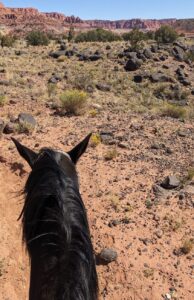 And when I sleep well, everything goes better.
And when I sleep well, everything goes better.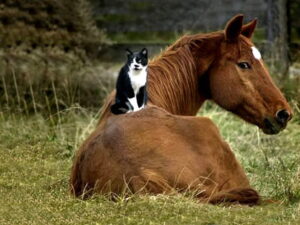 plates in the kitchen, while the rank and file scarf the usual rations outdoors. I also cleaned out my fridge, because the pet sitter would be rummaging around in there, and … really, it needed doing.
plates in the kitchen, while the rank and file scarf the usual rations outdoors. I also cleaned out my fridge, because the pet sitter would be rummaging around in there, and … really, it needed doing. atrophy, and what courage I do have went to dealing with long haul COVID, economic uncertainty, and the stresses we all put up with for some very challenging years.
atrophy, and what courage I do have went to dealing with long haul COVID, economic uncertainty, and the stresses we all put up with for some very challenging years. By the time you read this, I will be back home, but my recent travels took me to Central Utah. You know… Capitol Reef, Escalante Canyons, scenery without compare. I got together with much of my family, something we haven’t done for five years. We come from all over the country, the nieces and nephews attend as they can, and it’s generally fun, meaningful, a little intense, and a little taxing.
By the time you read this, I will be back home, but my recent travels took me to Central Utah. You know… Capitol Reef, Escalante Canyons, scenery without compare. I got together with much of my family, something we haven’t done for five years. We come from all over the country, the nieces and nephews attend as they can, and it’s generally fun, meaningful, a little intense, and a little taxing. I get stuck a lot when I write, but I find Cory Doctorow’s prescription comforting. (You don’t need to know the whole route, but you can get there safely even in the dark if you just don’t overdrive your headlights…) I tried my usual coping mechanisms–sleep on it, put it away for a couple days, read from the start of the draft, re-read the last book in the series, do some reading on creativity, eat chocolate, take unplugged walks, go to the barn.
I get stuck a lot when I write, but I find Cory Doctorow’s prescription comforting. (You don’t need to know the whole route, but you can get there safely even in the dark if you just don’t overdrive your headlights…) I tried my usual coping mechanisms–sleep on it, put it away for a couple days, read from the start of the draft, re-read the last book in the series, do some reading on creativity, eat chocolate, take unplugged walks, go to the barn. Fortunately for me, I did the drive down from SLC with my nephew Jackson, who served two years in federal prison for protesting George Floyd’s murder. We talked. Jax sees his incarceration as something like an enforced stay at a particularly weird monastery. He learned a lot, about himself, about socializing in a fish bowl, about poker, about power.
Fortunately for me, I did the drive down from SLC with my nephew Jackson, who served two years in federal prison for protesting George Floyd’s murder. We talked. Jax sees his incarceration as something like an enforced stay at a particularly weird monastery. He learned a lot, about himself, about socializing in a fish bowl, about poker, about power. I grew up in the semi-agricultural zone between a major university town and a historic village on its outskirts. I lived in a neighborhood–not a development–though only one side of our property was bordered by another house. The rest was woods, fields, or park.
I grew up in the semi-agricultural zone between a major university town and a historic village on its outskirts. I lived in a neighborhood–not a development–though only one side of our property was bordered by another house. The rest was woods, fields, or park. Another neighbor paused while walking her dogs to catch me up on some memories her 98-year-old dad has of the house where I live. The girls from half a mile down the road have been stopping by on their bikes to gush over a litter of kittens now calling my porch home. (Yes, those kittens WILL be fixed.)
Another neighbor paused while walking her dogs to catch me up on some memories her 98-year-old dad has of the house where I live. The girls from half a mile down the road have been stopping by on their bikes to gush over a litter of kittens now calling my porch home. (Yes, those kittens WILL be fixed.)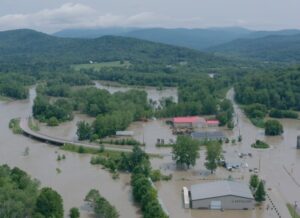 humanity’s future, see his book,
humanity’s future, see his book, 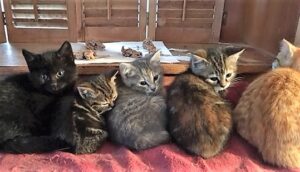 Neighbors in Vermont, according to McKibben, neighbor. Public institutions fulfill their mandates reliably. The benefit of the doubt is still given, and kindness is always an available default. People show up for one another. McKibben’s point is that if we let the mess we’re in continue to divide us, we’re doomed, but there’s a way out of the trap that begins with backyard chats, shared appreciation for kittens, and gratuitous bear alerts.
Neighbors in Vermont, according to McKibben, neighbor. Public institutions fulfill their mandates reliably. The benefit of the doubt is still given, and kindness is always an available default. People show up for one another. McKibben’s point is that if we let the mess we’re in continue to divide us, we’re doomed, but there’s a way out of the trap that begins with backyard chats, shared appreciation for kittens, and gratuitous bear alerts. From time to time I come across references to Rev. Gary Chapman’s book,
From time to time I come across references to Rev. Gary Chapman’s book, 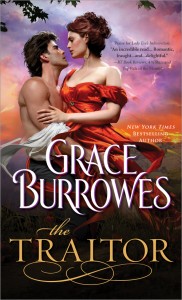 And I like to be of practical use to those I care about. At the therapeutic riding barn, I don’t care if my job is mucking stalls, side-walking in silence, or horse-leading a reluctant pony. I just want to be useful to a good organization. I’m happy with quality time as an expression of caring, but less comfortable with gifts. Affection isn’t casual with me, either.
And I like to be of practical use to those I care about. At the therapeutic riding barn, I don’t care if my job is mucking stalls, side-walking in silence, or horse-leading a reluctant pony. I just want to be useful to a good organization. I’m happy with quality time as an expression of caring, but less comfortable with gifts. Affection isn’t casual with me, either.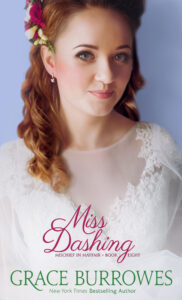 darned shame. When some guy says all the things but never offers to grab the check, and I’m smitten just because of the smarmy words, that’s another kind of darned shame.
darned shame. When some guy says all the things but never offers to grab the check, and I’m smitten just because of the smarmy words, that’s another kind of darned shame.